This crisis is shrinking attention spans and test scores alike.
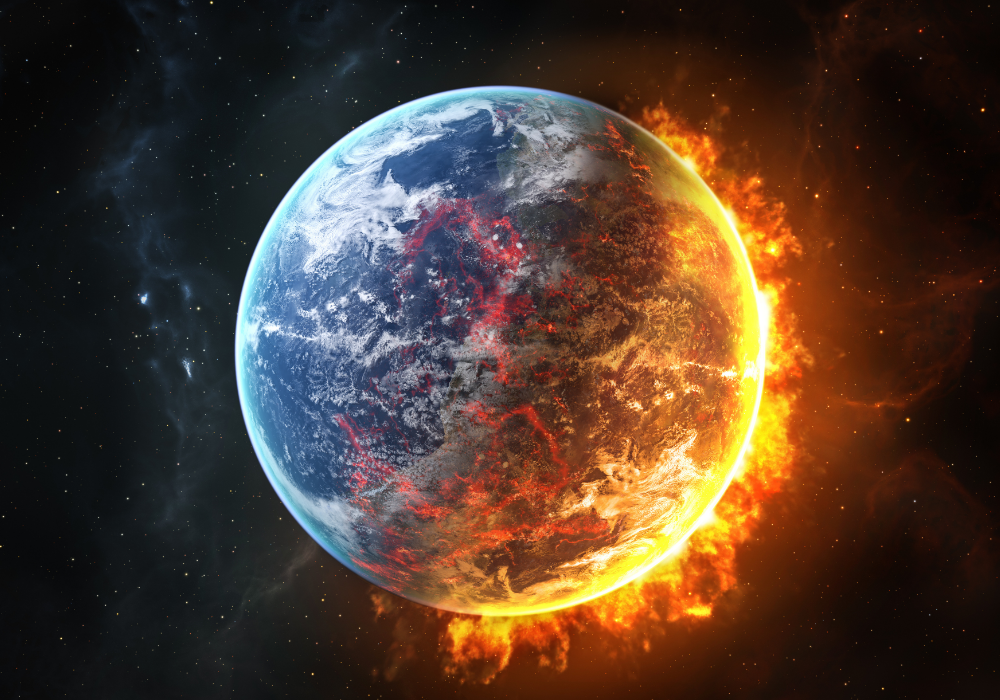
We talk a lot about melting glaciers, rising seas, and wild weather when it comes to climate change. But here’s something you don’t hear nearly enough: it’s coming for our brains, too. Literally. The hotter our planet gets, the harder it becomes to focus, think clearly, learn, and even sleep properly. And it’s not just a feeling—there’s real science showing how heat, air pollution, and stress from climate disasters are quietly messing with our cognitive function.
If you’ve been feeling foggy, tired, or like your memory’s not what it used to be, it might not just be stress or screens—it might be the climate crisis creeping into your nervous system. This isn’t just about polar bears anymore. It’s about your ability to think, react, and function. Here are 10 alarming ways climate change is lowering brain power—and why ignoring it could cost us more than we realize.
1. Heat waves are literally cooking our cognitive function.

It’s not just uncomfortable—extreme heat can actually slow down your brain. Studies show that during heat waves, people perform significantly worse on tasks that require memory, attention, and complex thinking. Your brain has to work overtime just to regulate body temperature, leaving less energy for everything else. A 2018 study by Harvard researchers for The Harvard Gazette found that students living in dormitories without air conditioning during a heat wave experienced 13.4% longer reaction times and 13.3% lower scores on cognitive tests compared to peers in air-conditioned rooms.
And it doesn’t take a desert to make this happen. Even modest increases in indoor temperatures have been shown to impair reaction time and decision-making. For students, workers, and anyone trying to focus, this isn’t just a nuisance—it’s a full-blown productivity killer.
Think of it like brain fog in overdrive, triggered by the thermometer. If the forecast says triple digits, your mental clarity might be the first to melt. And the more common heat waves become, the more often we’ll be thinking through a haze we didn’t choose.
2. Air pollution is damaging brain health in ways we’re just beginning to understand.
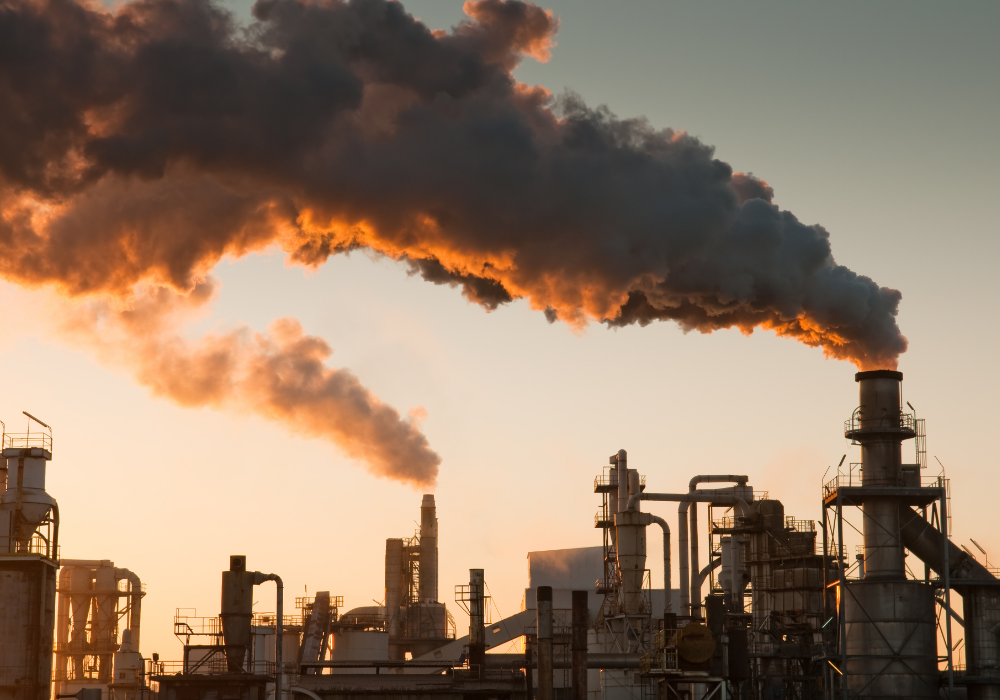
We’ve known for a while that air pollution messes with your lungs—but now we’re learning it goes straight to the brain, too. Tiny particles like PM2.5 can enter the bloodstream through the lungs and eventually reach the brain, where they can trigger inflammation, oxidative stress, and even shrinkage in key areas tied to memory and learning. Per Jack McLachlan for Frontiers in Environmental Health, long-term exposure to PM2.5 and NO₂ with cognitive decline and increased dementia risk.
Children and the elderly are especially vulnerable, but no one is immune. Long-term exposure has been linked to lower IQ scores in kids and a higher risk of Alzheimer’s and dementia in adults. And guess what drives up pollution levels? The same fossil fuels heating the planet. It’s a double hit: the climate crisis creates more dirty air, and that dirty air chips away at our cognitive health. If you’re breathing harder and thinking slower, it might not be in your head—it’s in the air.
3. Poor sleep from hotter nights is wrecking mental clarity.

Hotter nights aren’t just making it harder to fall asleep—they’re actively robbing you of the deep, restorative sleep your brain needs to function. Without that rest, everything starts to unravel. Your memory slips, your focus wanders, and your emotions get harder to regulate. And the more nights like this you stack, the worse it gets. According to Kelton Minor for One Earth, on nights warmer than 30°C (86°F), people lost an average of 14 minutes of sleep, with the elderly, women, and residents of lower-income countries experiencing the most significant impacts
One study found that unusually warm nighttime temperatures cause a measurable decline in sleep quality across populations. Add in the fact that many people can’t afford air conditioning—or live in areas where heat lingers well past sunset—and you’ve got a sleep crisis quietly brewing. Sleep is when your brain resets and repairs. Take that away, and everything from mood to memory suffers. If climate change is turning rest into a luxury, the downstream effect on our brains could be massive.
4. Children are learning less in overheated classrooms.

It’s hard enough to concentrate when you’re a kid. Add in a sweltering classroom with no AC, and you’re basically asking students to fight through brain fog while solving math problems. Research shows that students score lower on tests when taking them during heat waves—and the impact is even worse for schools without proper cooling systems.
That means climate change isn’t just affecting the planet—it’s literally altering learning outcomes. Lower scores. Slower comprehension. More mental fatigue. And because school buildings in lower-income areas are less likely to have air conditioning, the cognitive toll hits the most vulnerable kids hardest.
Education is supposed to be a great equalizer, but when the air in the classroom works against you, it’s hard to keep up. If we care about intelligence, equity, and future innovation, we need to cool down the places where young minds are being shaped.
5. Dehydration from rising heat quietly drains mental performance.

As temperatures rise, so does your risk of dehydration—and even mild dehydration has been shown to affect brain function. You might not even feel thirsty, but your concentration, short-term memory, and reaction speed can all take a hit. It’s subtle, but real. You’ll feel foggier, slower, and more irritable without really knowing why.
Now imagine that happening more frequently thanks to climate change. Longer hot seasons, increased outdoor exposure, and limited access to clean water in many communities make dehydration more common—and the effects more widespread. Staying hydrated sounds simple, but it’s not always easy in places dealing with drought, poverty, or heat emergencies. Your brain is about 75% water. When the world gets drier, it gets dumber—not because we’re not trying, but because we’re physiologically underpowered. And that’s a fixable problem if we act fast.
6. Climate anxiety is stealing focus, motivation, and mental bandwidth.
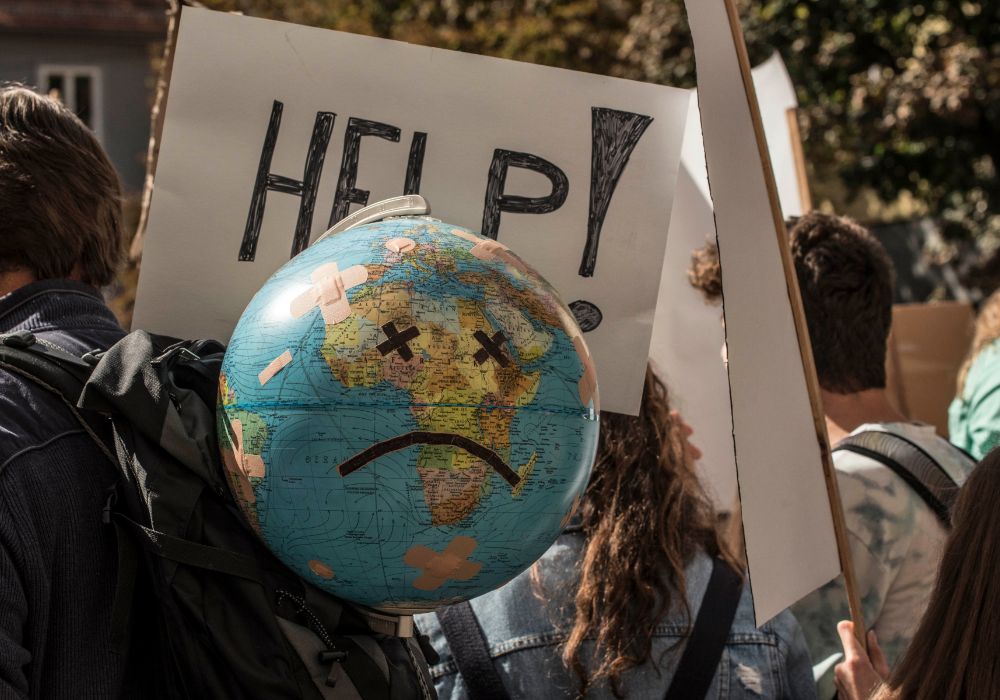
Even if you’re not in the path of a wildfire or flood, just knowing what’s coming can weigh on your brain. Climate anxiety is real—and rising fast, especially among young people. It doesn’t always look like panic. Sometimes it’s low-key dread, distraction, or a sense of hopelessness that drains your ability to focus or make long-term plans.
This chronic stress creates background noise your brain has to constantly manage. And over time, that effort eats into your cognitive capacity. You might feel tired for “no reason,” struggle to concentrate, or procrastinate decisions—not because you’re lazy, but because your mind is trying to process a slow-moving disaster. It’s hard to plan your future when the planet’s feels uncertain. The more climate chaos we normalize, the harder it becomes to think clearly through the fog of quiet, daily dread.
7. Disasters destroy more than homes—they disrupt cognitive development.
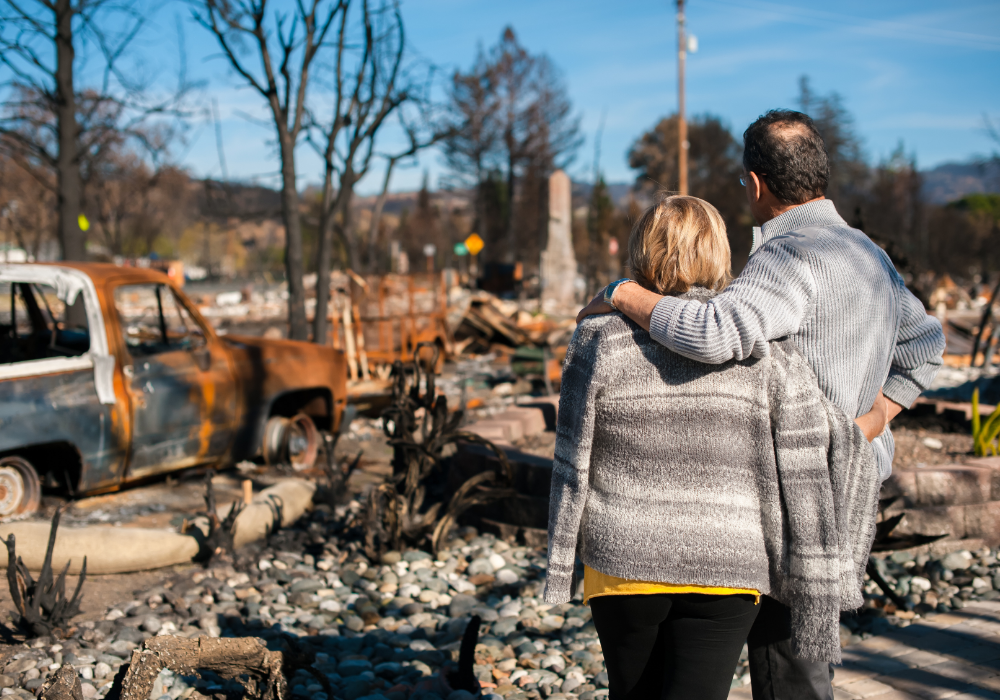
When hurricanes, wildfires, or floods hit, the destruction is visible—but what’s less visible is what happens to the people living through it, especially children. The trauma of climate-driven disasters has been linked to long-term changes in attention span, memory, and emotional regulation. And these effects often show up long after the cleanup crews are gone.
Kids in disaster-prone areas often miss school, lose safe sleep environments, or endure ongoing stress at home—all of which affect how their brains develop. The emotional toll mixes with physical instability, and together, they chip away at cognitive resilience.
When disasters become regular, so does the disruption to learning and development. And it’s not just in far-off places—it’s happening in American communities right now. If we ignore what climate events do to kids’ brains, we’re setting ourselves up for a future that thinks less clearly and copes less well.
8. Longer allergy seasons are clouding the brain with inflammation.

Sneezing and itchy eyes are annoying, sure—but seasonal allergies can also seriously mess with how your brain functions. Thanks to longer, more intense pollen seasons caused by climate change, more people are walking around in a fog of histamines and inflammation. That brain fog? It’s not just in your head—it’s in your immune system, too.
Allergies increase inflammation throughout the body, and that includes the brain. Studies have linked allergy flare-ups to decreased reaction times, worsened mood, and impaired short-term memory. And for people with preexisting mental health conditions, the effects can be even more intense. If pollen used to bug you for two weeks and now it’s two months, that’s not just a longer inconvenience—it’s a cognitive cost. As climate change boosts plant growth and extends allergy seasons, we’re going to be sneezing our way into collective brain fog for months at a time.
9. Heat inequality means some communities are losing brainpower faster.
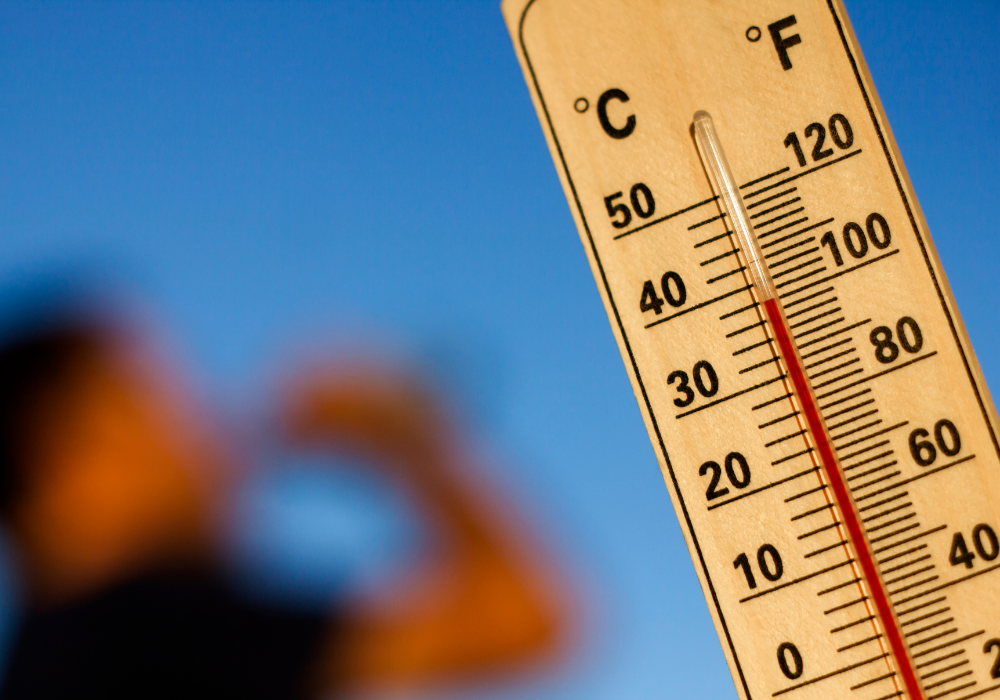
Not everyone feels the effects of climate change equally. Neighborhoods with less green space, more asphalt, and fewer resources tend to be hotter—and that heat doesn’t just raise temperatures, it lowers performance. Poorer communities are more likely to deal with heat-related sleep loss, air pollution, and overheated schools, all of which add up to a serious brain drain.
This creates a hidden form of inequality that goes beyond comfort. When some kids grow up learning in heat-stressed environments while others get air-conditioned classrooms, it’s not just a gap in resources—it’s a gap in cognitive opportunity. Climate injustice isn’t just about who gets flooded—it’s about who gets to think clearly, learn fully, and succeed long-term. If we don’t close the climate gap, we’ll be widening the achievement gap in ways no test score can explain.
10. The longer we delay action, the dumber the decisions become.
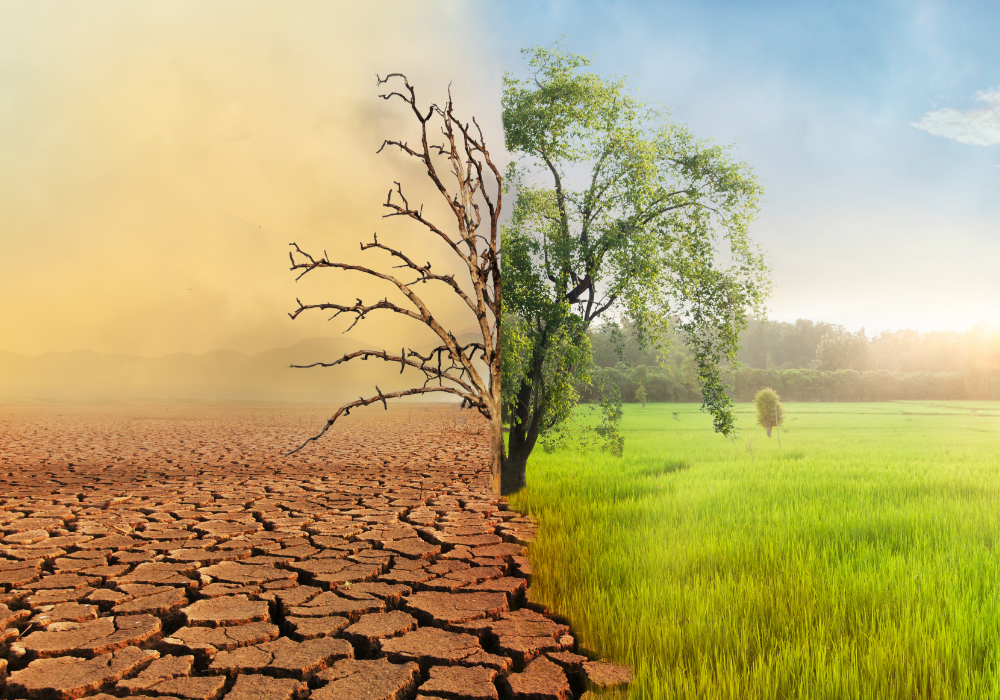
Here’s the real kicker: the longer we wait to fix this, the harder it becomes to think clearly about how to fix it. Climate change doesn’t just impair brains individually—it wears down collective intelligence. As heat, stress, and misinformation pile up, public decision-making suffers. We get more reactive, more polarized, and less capable of solving the very problems staring us in the face.
This isn’t just about mental fog—it’s about governance, leadership, and crisis response. If rising temperatures are making it harder to learn, sleep, focus, and plan, then the systems we rely on will start to reflect that breakdown. It’s not just a few people underperforming—it’s entire communities being mentally worn thin. The climate crisis is stealing clarity from the future. And the scariest part? The longer we wait, the harder it’ll be to think our way out of it.
